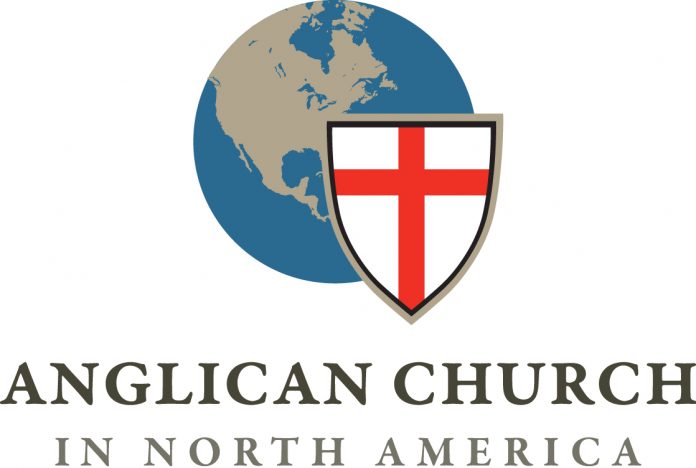Membership up 13%, attendance up 16% from 2009 to 2013
Bishops of the Anglican Church in North America (ACNA) have encouraging news as they convene this evening to begin the process of selecting a new leader: a growing flock. The fledgling denomination, launched in 2009, has seen membership grow by 13 percent to 112,504 members and attendance by 16 percent to 80,471 attendees.
The numbers contrast with the U.S.-based Episcopal Church that many ACNA members departed from, which has declined in its domestic dioceses from 2,006,343 members in 2009 to 1,894,181 members in 2012, the most recent reporting year. Episcopal Church domestic attendance declined from 682,963 in 2009 to 640,142 in 2012. The Episcopal Church Center usually releases updated statistics for the previous reporting year in the autumn.
In releasing statistics, the ACNA officials note that 74 percent of congregations completed reports. In an attempt to provide a complete picture, the denomination provides two statistical totals: “reported” figures and “projected” figures that substitute median averages for congregations that did not report. In the Episcopal Church, officials roll over previously reported statistics for non-reporting parishes until new ones are received. In the case of both the “reported” and “projected” figures, ACNA posts growth, which is strongest with the “reported” figures.
Archbishop Robert Duncan is concluding a five-year term as the denomination’s top official and will step down next week at the Anglican Provincial Assembly held June 25-28 at St. Vincent College in Latrobe, PA. The province, which aspires to be a part of — but is not formally recognized by – the worldwide Anglican Communion, unmistakably bears the fingerprints of Duncan, a longtime leader in what has been referred to as the “Anglican Realignment.”
The outgoing leader has steered the Anglican Church towards aggressively planting new congregations, especially in urban centers and college towns. Since 2009, the church has seen a growth of 40 percent in net congregations, from about 700 to 983 in 2013. In contrast, church planting efforts in the Episcopal Church have nearly ground to a halt, with overall parishes dropping from 6,895 in 2009 to 6,667 in 2012.
In addition to an emphasis on reaching un-churched people, Duncan traveled extensively during his term in order to build closer relationships with overseas Anglicans. The denomination now asserts that provinces representing the majority of the roughly 80 million Anglicans in the world now recognize ACNA, substantially broadening the group from the initial nine overseas provinces that recognized it in 2009. The church has also promoted and grown the Anglican Relief and Development Fund, an agency that completed development projects worth in excess of $5.6 million over the last seven years. The group has also channeled over $1 million to meet urgent relief needs.
ACNA took part in ecumenical dialogues with the Orthodox Church in America, Lutheran Church – Missouri Synod, Messianic Jewish groups and the Polish National Catholic Church. The denomination helped launch the Common Ground Christian Network, an ecumenical partnership of evangelical denominations and organizations (including IRD).
Duncan served as bishop of the Episcopal Diocese of Pittsburgh from 1996 until he was deposed as a bishop in the Episcopal Church in 2008. Named a bishop of the Anglican Province of the Southern Cone (Spanish-speaking South America) after his removal, Duncan was again elected Pittsburgh bishop after the diocese voted to depart the Episcopal Church weeks later.
In 2009, Pittsburgh joined with three other former Episcopal Church dioceses and several convocations of churches sponsored by the Anglican provinces of Rwanda, Nigeria, Uganda, Kenya and the Southern Cone to launch ANCA. After voting to launch the new Anglican “province in formation,” Duncan was installed as its first archbishop by Benjamin Nzimbi, archbishop of Kenya.
The denomination’s path has not been without conflict: in 2010, the Anglican Mission in America (AMIA), a founding organization of ACNA and part of the Anglican Church of Rwanda, announced it was transitioning to “missionary partner” – a lower level of affiliation with ACNA. Eighteen months later, the AMIA experienced a crisis when its officials unilaterally severed their connection with the Rwandan church, forfeiting ACNA missionary partner status. The dispute was partly resolved when two-thirds of AMIA congregations opted to affiliate with ACNA by directly joining its dioceses or through a new Rwandan-sponsored missionary jurisdiction. The remaining third of AMIA congregations recast themselves as a mission society with connections to the Anglican Church of Congo.
Many ACNA congregations that departed the Episcopal Church have also endured litigation over disputed church properties with their former denomination. While Duncan has acknowledged the pain of the past split for many congregations and the difficulty of contentious litigation, he has encouraged congregations to prioritize evangelism and not to dwell on past disputes.
ACNA is not the only church to emerge from denominational strife over scriptural authority and human sexuality. Following a 2009 vote by the Evangelical Lutheran Church in America (ELCA) to liberalize teachings on marriage and sexuality, hundreds of congregations departed to found the Lutheran Church in North America (NALC) or join the already-existing Lutheran Congregations in Mission for Christ (LCMC). Following a 2010 vote to remove a requirement that Presbyterian clergy remain chaste in singleness or practice fidelity in married life, scores of congregations have departed the Presbyterian Church (U.S.A.) to join the new Evangelical Covenant Order of Presbyterians (ECO) or the already-existing Evangelical Presbyterian Church (EPC). Both the ELCA and PCUSA have witnessed similar numeric declines to the Episcopal Church, with traditionalist groups in the PCUSA expecting further departures if the denomination changes teaching on marriage at the governing General Assembly gathered this week in Detroit.
Reprinted with the author’s permission from Juicy Ecumenism.
